How to Check the Mastercard MATCH List
June 12, 2023
Stop Paying High-Risk Merchant Fees
October 2, 2023The MATCH List Reason Codes
Did you just find out that you are on the Mastercard MATCH List? Not sure how you ended up there? The MATCH List is an industry blacklist that you never want to find yourself or your business on. It can greatly limit your ability to accept credit card payments, which is the lifeblood of most businesses these days. As such, your business and livelihood may suffer. Luckily, there are ways to seek early removal, but understanding how you got on the list in the first place is essential for your removal. Keep reading to learn more about the MATCH List reason codes and the most popular questions that come along with them.
What Is The MATCH List?
The Mastercard Alert to Control High-risk Merchants (MATCH) allows an acquiring partner to look up whether another acquiring partner has terminated a merchant in the past and the reason for that termination to aid in an onboarding decision. This will provide acquirers with the opportunity to develop and review enhanced or incremental risk information before entering into a merchant agreement.
The API also provides the facility for an acquiring partner to add a merchant termination event to the system. Further, the API allows an acquiring partner to identify when other acquiring partners have inquired about a given merchant.
MATCH uses customer-reported information regarding merchants and their owners to offer acquirers the following fraud detection features and options for assessing risk:
- Acquirers may add and search for information regarding up to five principal and associate business owners per merchant.
- Acquirers may designate regions and countries for database searches.
- MATCH uses multiple fields to determine possible matches.
- MATCH supports retroactive alert processing of data residing on the database for up to 360 days.
What Are The MATCH List Reason Codes?
There are 13 reason codes that can qualify you and your business from ending up on the MATCH List. The reason codes, as lined out by Mastercard, include:
- Account Data Compromise: An occurrence that results, directly or indirectly, in the unauthorized access to or disclosure of Account data.
- Common Point of Purchase (CPP): Account data is stolen at the Merchant and then used for fraudulent purchases at other Merchant locations.
- Laundering: The Merchant was engaged in laundering activity. Laundering means that a Merchant presented to its Acquirer Transaction records that were not valid Transactions for sales of goods or services between that Merchant and a bona fide Cardholder.
- Excessive Chargebacks: With respect to a Merchant reported by a Mastercard Acquirer, the number of Mastercard chargebacks in any single month exceeded 1% of the number of Mastercard sales Transactions in that month, and those chargebacks totaled USD 5,000 or more.
With respect to a merchant reported by an American Express acquirer (ICA numbers 102 through 125), the merchant exceeded the chargeback thresholds of American Express, as determined by American Express. - Excessive Fraud: The Merchant effected fraudulent Transactions of any type (counterfeit or otherwise) meeting or exceeding the following minimum reporting Standard: the Merchant’s fraud-to-sales dollar volume ratio was 8% or greater in a calendar month, and the Merchant effected 10 or more fraudulent Transactions totaling USD 5,000 or more in that calendar month.
- Fraud Conviction: There was a criminal fraud conviction of a principal owner or partner of the Merchant.
- Mastercard Questionable Merchant Audit Program: The Merchant was determined to be a Questionable Merchant as per the criteria set forth in the Mastercard Questionable Merchant Audit Program (refer to section 8.4 of this manual).
- Bankruptcy/Liquidation/Insolvency: The Merchant was unable or is likely to become unable to discharge its financial obligations.
- Violation of Standards: With respect to a Merchant reported by a Mastercard Acquirer, the Merchant was in violation of one or more Standards that describe procedures to be employed by the Merchant in Transactions in which Cards are used, including, by way of example and not Cardholders, minimum/maximum Transaction amount restrictions, and prohibited Transactions set forth in Chapter 5 of the Mastercard Rules manual.
With respect to a merchant reported by an American Express acquirer (ICA numbers 102 through 125), the merchant was in violation of one or more American Express bylaws, rules, operating regulations, and policies that set forth procedures to be employed by the merchant in transactions in which American Express cards are used. - Merchant Collusion: The Merchant participated in fraudulent collusive activity.
- PCI Data Security Standard Noncompliance: The Merchant failed to comply with Payment Card Industry (PCI) Data Security Standard requirements.
- Illegal Transactions: The Merchant was engaged in illegal Transactions.
- Identity Theft: The Acquirer has reason to believe that the identity of the listed Merchant or its principal owner(s) was unlawfully assumed for the purpose of unlawfully entering into a Merchant Agreement.
Reason Code 4: Excessive Chargebacks
Chargebacks are a normal part of conducting business. Whether a customer isn’t satisfied with the product or service they received, does not recognize your line item on their bank statement, or hasn’t received their product or service in a timely manner, people can open up a chargeback with their bank at any time. As such, the Mastercard MATCH List allows the wiggle room of 1% per month. Once this number starts creeping higher, however, you can quickly find yourself on the MATCH List.
It is important to keep plenty of documentation regarding each transaction so that you can dispute any chargebacks that come your way. Providing great customer service, providing products and services as advertised and in a timely manner, and having your business name clearly stated in bank transactions will help prevent chargebacks in the future.
Reason Code 9: Violation of Standards
What are the standards Mastercard is referring to? This is the Mastercard Rules Manual, which you can find right here. They are the Mastercard rules, standards & compliance programs for the merchants, processors & customers to promote reliable, flexible & secure commerce.
Reason Code 11: PCI Data Security Standard Noncompliance
Data is of utmost importance when it comes to banking, and Mastercard requires all businesses to adhere to certain standards in order to maintain the data protection of customers. If your business suffers from a data leak, you can quickly find yourself on the MATCH List, even if it is not your fault.
Luckily, if you follow the PCI Data Security Standard, you should have no issues. Wondering if you’re following the standards or need a refresher? Click here to get the full guide.
Removal: What Can I Do?
Even though you are on the MATCH List and you’re unable to process credit cards at the moment, you have options to save your business. These include:
- Seek a high-risk merchant. High-risk merchants will generally accept businesses that are on the MATCH List, but not always. You can see if they will accept you so that you can keep accepting credit cards. However, they come with lengthy contracts that are very difficult to get out of and charge extremely high fees that eat into your profits.
- Wait the five-year period. Anyone who is placed on the MATCH List will be automatically aged out after five years. Simply waiting this period will allow you to conduct business again, but it is generally not realistic.
- Get removed early. Don’t want to sign up with a high-risk merchant or wait out the five-year period? You can seek early removal with professional assistance.
Early MATCH List Removal with TFM Law
If you have found yourself on the Match List, we can help you. The Law Offices of Theodore Monroe focuses on litigation and counseling in the areas of payments, credit card processing, e-commerce, direct response marketing, and Federal Trade Commission enforcement. Last year the firm got 100% of the people who came to us off the MATCH list.
Theodore F. Monroe, Founder of TFM Law, has successfully:
- Represented merchants recovering funds from processors
- Structured processing relationships to comply with Card Brand requirements
- Drafted and negotiated contracts involving payment facilitators and ISOs
- Represented continuity merchants in compliance and litigation issues
- Fought for numerous companies in suits brought by the Federal Trade Commission and obtained excellent results for firms in the digital products, loan modification, government grant, and nutraceuticals industries
Before becoming a lawyer, Mr. Monroe worked as a forensic accountant at Coopers & Lybrand, which provided him with a background in forensic accounting and financial analysis that is unique among litigators in Los Angeles. Mr. Monroe studied at Duke University Law School, achieved a BS with Honors, Accounting, University of Kentucky, and is a member of the California State Bar and the Kentucky State Bar.
If you’re ready to move forward with your business and your life and end this MATCH List nightmare once and for all, we can help you. Visit us at howtogetoffmatch.com!




